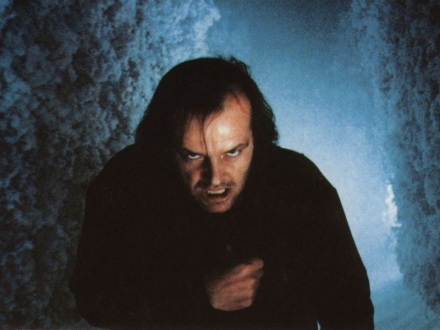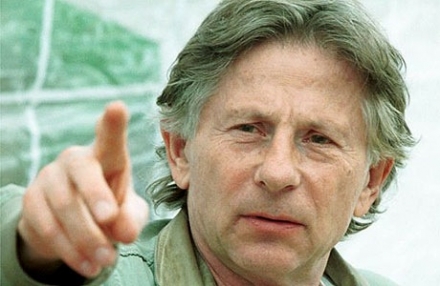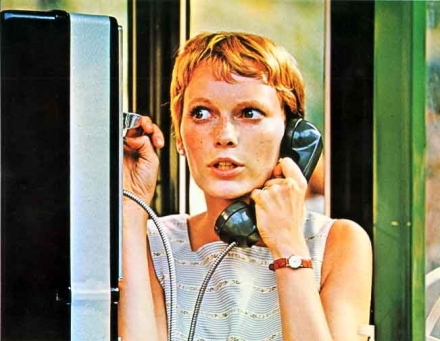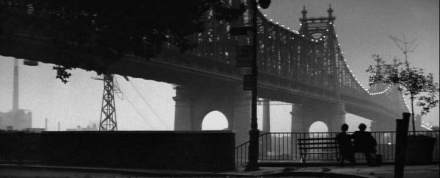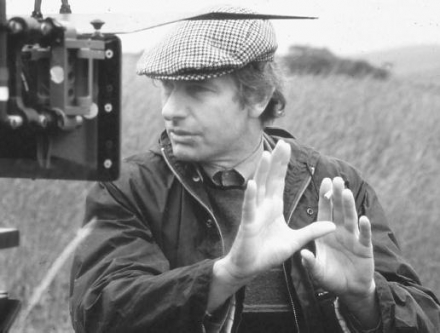Movie Playlist: Brad Anderson
Welcome to another edition of Movie Playlist, where we talk to the writers, directors, and stars about their favorite films. I've always found the celebrity playlists on iTunes to be interesting. Most everyone in the film business moved to Hollywood after discovering their love of films. And I've always love talking to people about their favorite films. So talking to the people who make the movies about their favorite films just seemed like a natural idea.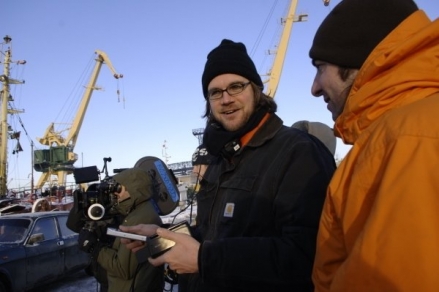
In this week's Movie Playlist we interviewed director Brad Anderson, who I first discovered through the wonderful but unseen Boston indie Next Stop Wonderland, which featured Hope Davis and Phillip Seymour Hoffman. In 1997, Anderson was named by Variety as one of the "Ten Leading New Independent Directors to Watch." His filmography includes Happy Accidents, Session 9, and The Machinist. His television credits include episodes of Homicide; The Wire; The Shield; and Surface. His new film Transsiberian, which hits theaters today, is a Hitchcockian thriller which he also co-wrote.
/Film: I just want to start off saying, I'm a big fan of all your work. I'm from Boston,
Brad Anderson: Oh yeah, really.
/Film: so I've been following your career since Next Stop Wonderland.
Brad Anderson: Oh great, wow!
/Film: So this is great, so – I want to talk to you today, I'm not sure if they briefed you but we do a feature called Movie Playlist which basically talks about your favorite movies of all time, or maybe not even just your favorite movies but movies you watch a lot, or movies you love. What are some of your favorite movies?
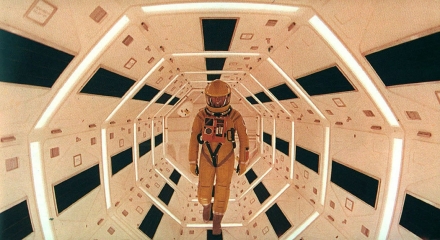
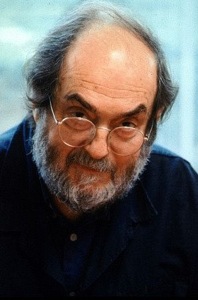 Brad Anderson: Favorite movies? It runs the gamut, in no particular order and no particular preference, I just caught, anything by Stanley Kubrick, I can watch those movies again and again I don't know why, but just something about what he invests in his films and the meticulous level of detail, and choreography that I just find as a filmmaker craft of film making is so apparent in his movies that every time you watch them it's like being taught how to make a movie, so yeah, I just caught 2001 recently again and it's just like the kind of thing you're clicking through the channels and you sort of catch a piece of it and you're like yeah, I've seen this about 20 million times and you're about to switch to another channel and you just find yourself watching it and the next thing you know you've watched it all over again./Film: 2001 is one of those movies that if you come across on cable, basically you've lost three hours of your life.Brad Anderson: [laughs] Yeah, it's so amazing to me that movie and all his films, but that one in particular because it's like, you think about it the way – I don't know what you'd call it, it's not a thriller, it's not a straight out sci-fi film, it's not necessarily a straight out adventure movie, it's just a study in visual brilliance, you know, and the way that his use of sound and his use of music and anything by Kubrick.
Brad Anderson: Favorite movies? It runs the gamut, in no particular order and no particular preference, I just caught, anything by Stanley Kubrick, I can watch those movies again and again I don't know why, but just something about what he invests in his films and the meticulous level of detail, and choreography that I just find as a filmmaker craft of film making is so apparent in his movies that every time you watch them it's like being taught how to make a movie, so yeah, I just caught 2001 recently again and it's just like the kind of thing you're clicking through the channels and you sort of catch a piece of it and you're like yeah, I've seen this about 20 million times and you're about to switch to another channel and you just find yourself watching it and the next thing you know you've watched it all over again./Film: 2001 is one of those movies that if you come across on cable, basically you've lost three hours of your life.Brad Anderson: [laughs] Yeah, it's so amazing to me that movie and all his films, but that one in particular because it's like, you think about it the way – I don't know what you'd call it, it's not a thriller, it's not a straight out sci-fi film, it's not necessarily a straight out adventure movie, it's just a study in visual brilliance, you know, and the way that his use of sound and his use of music and anything by Kubrick.
Brad Anderson: The Shining in regards to darker, horror genre type films. When I was doing the Session 9, people often referred to The Shining, although when we were doing that movie, it wasn't like we were thinking about The Shining but in hindsight, it was sort of my attempt to do kind of a home house movie, and I loved that film. There's just something about Kubrick that I can just watch his films over and over again, even the earlier ones which are more less Kubrickian, like The Spartacus. Which is amazing.
/Film: Where do you fall in Eyes Wide Shut?
Brad Anderson: That's the one that to be honest with you I didn't – I saw it a couple of times. It's not one that I'm as drawn to. I mean there are moments in it that are so great, the visuals and his – what he does with the camera is always worth watching, but there is just something about the Tom Cruise and Nicole Kidman duo which sort of overshadowed the Kubrick thing, you know, it almost became too much of a – to my mind anyway – just became more about them than it was about him and that was a problem for me. But even like A.I., you know, which was sort of Spielberg's homage to Kubrick, and I would have loved to have seen what Kubrick would have done with that.
Brad Anderson: Most of my film makers of kind of that era, you know, 60's 70's and I like Roman Polanski's films. I think is Transsiberian I think about his movies like Knife in the Water, or Potion, or Tenant, which was very much on Scott Kosar's mind when he was writing The Machinist.
Brad Anderson: I love his films because I like the way, what he does with creating a brooding atmosphere of paranoia, I mean like Rosemary's Baby is still like one of the best horror films ever made and everyone else always tries to replicate it and never can. But he has just a way of creating either what he does, also what he does with the camera and every shot is like thought out and there's always a reason to why he puts a camera in a certain place.
/Film: Do you think nowadays that's a lot of director are composing just for the cool shot?
Brad Anderson: Yeah, I think a lot of it is like, I think a lot of the way people shoot movies now it's like it's based on like how graphic novels are illustrated. It's all about going for the shot that is going to be the wow kind of shot and the composition, it's sort of pulled from a comic book as opposed to shooting in a way 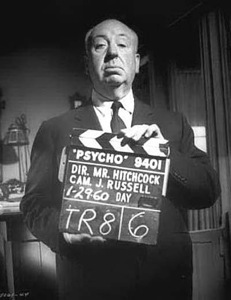 that's based on telling a story and doing it efficiently because to me that's important. I think both Kubrick and Polanski were both like very efficient storytellers. Alfred Hitchcock as well, you know, they didn't waste. There was never a shot or a sequence that feels superfluous. They know where to point the camera and they know why it's there and what it's trying to tell the audience whereas I'm not saying I'm like following their footsteps but a lot of film makers it seems are more driven by creating a kinetic sensual experience like sensation as opposed to getting into the psychology of a story or the characters, you know? And it's all about creating, using the camera and the sound because the use of sound now has gotten so out of hand, as a way to just pummel the audience with sensations and not using it to further a story or to get into the heads of the characters, and there's so little time these days in bigger studio movies anyhow to simply – to dwell on something, to observe something, you're forced into kind of like almost a visual boxing match or you're just forced by the director to look in so many directions, so many times that any chance to simply observe and when you see any film pre-1983 or something where the director allows a scene to unspool without an enormous amount of editing, without pulling you in innumerable directions and allows you to simply watch, and it's a pace that doesn't really tally with the kind of impatience of film audiences these days unfortunately. But I think if filmmakers like Andrei Tarkovsky is another filmmakers that when I was in film school was like wow, the best, and I still love his films. They're hard to watch because they're very slow, you know.
that's based on telling a story and doing it efficiently because to me that's important. I think both Kubrick and Polanski were both like very efficient storytellers. Alfred Hitchcock as well, you know, they didn't waste. There was never a shot or a sequence that feels superfluous. They know where to point the camera and they know why it's there and what it's trying to tell the audience whereas I'm not saying I'm like following their footsteps but a lot of film makers it seems are more driven by creating a kinetic sensual experience like sensation as opposed to getting into the psychology of a story or the characters, you know? And it's all about creating, using the camera and the sound because the use of sound now has gotten so out of hand, as a way to just pummel the audience with sensations and not using it to further a story or to get into the heads of the characters, and there's so little time these days in bigger studio movies anyhow to simply – to dwell on something, to observe something, you're forced into kind of like almost a visual boxing match or you're just forced by the director to look in so many directions, so many times that any chance to simply observe and when you see any film pre-1983 or something where the director allows a scene to unspool without an enormous amount of editing, without pulling you in innumerable directions and allows you to simply watch, and it's a pace that doesn't really tally with the kind of impatience of film audiences these days unfortunately. But I think if filmmakers like Andrei Tarkovsky is another filmmakers that when I was in film school was like wow, the best, and I still love his films. They're hard to watch because they're very slow, you know.
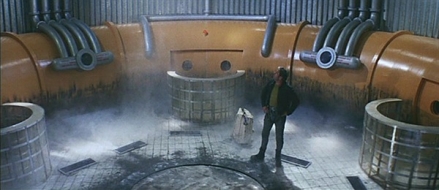
Brad Anderson: If you look at a movie like the original Solaris, even like the remake by Soderbergh, it's slow but if you watch the original one and it's like watching paint dry, at least for most people, but he's a film maker that you see some of his better films like The Mirror or Nostalgia or Stalker and there are shots in there that last five or six minutes with the camera not doing anything but just watching like a character walk across a room into the light. In his movies, they're almost like spiritual pilgrimages, you know, you watch his films and you feel like you're being allowed to watch some kind of spiritual pilgrimage. They're beautiful films and they're not movies that could ever work for contemporary audiences but the fact that they're Russian films is interesting because I studied Russian in college and was really into Russian movies at the time, and one of the reasons I always wanted to make a movie on the Transsiberian because I took that train after college and always wanted to make a movie and Russia I thought would be really cool. How much do they like, you know, Tarkovsky made movies in Russia and stuff and, although he's shot a lot of his movie in Estonia and the Baltic States is where he shot, where we shot Transsiberian , so yeah, Tarkovsky is a film maker that I adore in a different way.
Brad Anderson: Changing gears I like a lot of Woody Allen's films. Not so much the last several but just as a kind of almost nostalgic thing. Now that I live in New York and when my first feelings about Manhattan came from watching his movie, I think and you know, they, he just shot his last movie in Barcelona and a lot of, which is where we made The Machinist and it's where we produced Transsiberian so a lot of people who worked on my movie, worked on his new movie and even Europeans have that kind of nostalgic feeling for Woody Allen. [laughs] and that's weird, you know they just whenever they think of Woody Allen they think of New York and the Fall and Central Park and walking across the Brooklyn Bridge and so I just I don't know it's a good. His films always give me a good feeling./Film: I think you've named probably four different directors or filmmakers. I've noticed that actors list their favorite movies, but directors usually list their favorite filmmakers.Brad Anderson: Yeah, that might be true.
/Film: Which is kind of makes sense. OK, if you, and I know this is the worst cliche hypothetical situation but if you were on a desert island and you only had one movie to watch for the rest of your life, what movie would that be?
Brad Anderson: Oh my God! Gee that is a hypothetical. Man, it's like how could you ever – I don't know, You'd have to find a movie that would have so many levels that you could watch it, I mean in some ways 2001 might be that movie, only because it is timeless in some ways, even if you watch it now, the movie was made, what in 1969 or something like that and you can watch it now and still be caught up in it and it's believable visually and it seems credible and it's almost like looking at an icon, you know, you can see so many levels to it, so many, there's a spiritual level, there's like an ironic level to it, there's I mean I don't know just for lack of anything else I'd say maybe that movie, because I love the themes that it deals with and it's again, visually one of those movies you can watch each frame of it and find some satisfaction in knowing that there was intent behind every single frame and also in the use of sound and music, too. Also, it would transport you from your desert island environs probably in a way like no other movie, I mean it takes you to outer space, you know, it takes you to Jupiter, that's pretty far./Film: It's interesting that a lot of your choices have to do with moods and the tone, and I think that shows in your films as well.Brad Anderson: Yeah, I think that's what I like about making movies, plot and story are interesting to me and characters are interesting to a certain degree, but I got into making films because I like to try to forge some kind of mood or feeling in the movie whether it's feeling of sort of blissful melancholy like in Next Stop Wonderland, or a feeling of dread in Session 9, or the sort of feeling of dark paranoia in Transsiberian . I mean I like, that to me is what is so special about cinema is that you have all those instruments that you can use, music, sound effects, montage, the color, the way the camera moves. There are so many ways that you can create a sensation in the audience, I'm not just talking just about thrilling sensations, but just create an emotional response in the audience and I think plot obviously plays into that and story and character but those things all kind of work in tandem with each other but I think the thing which as a film maker most 'OK, how can we create this experience, this experiential thing for the audience'.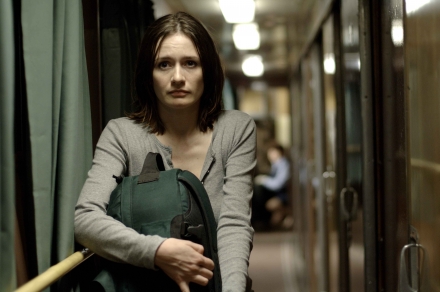 Brad Anderson: With Transsiberian it was like let's create the experience of being in this claustrophobic overheated train running through the most remote freezing cold environment on the planet, it's like creating those experiences is something that interests me and in location too, in some ways, like I like movies that sort of transports you, not necessarily to the far ends of the galaxy or anything but just into an environment that's unfamiliar and new you know. For Session 9, it was like transporting you to an abandoned mental hospital you know, how many people get a chance to do that? Or Transsiberian on a train in the middle of nowhere you know what I'm? Those kind of stories interest me.
Brad Anderson: With Transsiberian it was like let's create the experience of being in this claustrophobic overheated train running through the most remote freezing cold environment on the planet, it's like creating those experiences is something that interests me and in location too, in some ways, like I like movies that sort of transports you, not necessarily to the far ends of the galaxy or anything but just into an environment that's unfamiliar and new you know. For Session 9, it was like transporting you to an abandoned mental hospital you know, how many people get a chance to do that? Or Transsiberian on a train in the middle of nowhere you know what I'm? Those kind of stories interest me.
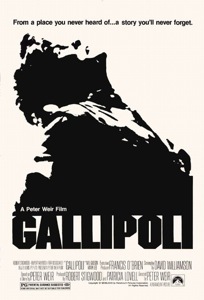 Brad Anderson: I like Peter Weir's films, he's another filmmaker I really like. I think he's another master craftsman, and each of his films takes you to a different world you know, Gallipoli on the front lines of World War 1 you know. I just love his films, I think he's really an interesting filmmaker and he's smart, and he tells smart stories and has some great sense of music. Music to me is really important in movies and I think it's something that people tend to underestimate how powerful music can be in terms of shaping your impression of a scene or of a movie. You think about 2001 without the Blue Danube song, and it would be a totally different movie if it were you know, some rock and roll song. So, I'm very conscious of music. In the last few films, the score is really important to me and the music and the quality of the music that makes a big difference./Film: I get the real sense that you're not like a fan of like Michael Bay orBrad Anderson: [laughs] really? No, I don't think I was saying that, no. I haven't see Transformers yet, I hear it's pretty good. No, I like a good, you know, I don't mind those sort of popcorn movies. Iron Man was really good for that kind of genre.
Brad Anderson: I like Peter Weir's films, he's another filmmaker I really like. I think he's another master craftsman, and each of his films takes you to a different world you know, Gallipoli on the front lines of World War 1 you know. I just love his films, I think he's really an interesting filmmaker and he's smart, and he tells smart stories and has some great sense of music. Music to me is really important in movies and I think it's something that people tend to underestimate how powerful music can be in terms of shaping your impression of a scene or of a movie. You think about 2001 without the Blue Danube song, and it would be a totally different movie if it were you know, some rock and roll song. So, I'm very conscious of music. In the last few films, the score is really important to me and the music and the quality of the music that makes a big difference./Film: I get the real sense that you're not like a fan of like Michael Bay orBrad Anderson: [laughs] really? No, I don't think I was saying that, no. I haven't see Transformers yet, I hear it's pretty good. No, I like a good, you know, I don't mind those sort of popcorn movies. Iron Man was really good for that kind of genre. Brad Anderson: I mean I like Spielberg, I mean I think Spielberg's films even now, he's in his sort of third act of his career, he's become like, he's an old-fashioned filmmaker you know what I mean there's a guy, my god! Who totally knows where to put the camera. Some of his stories tend to be a little lame, but you know, in terms of craft, he's a genius./Film: And it's amazing, he will make like Munich and Minority Report in one year or...Brad Anderson: I know, he's so fuckin' prolific, it's like, how can you be so fuckin' prolific. Well, like he's got a well-oiled machine around him that like a script enters into the machine and it can, any actor in the world that you can get in an instant. I mean that's like everything is at his fingertips, makes it easy to get a movie off the ground, whereas me, it takes me with my new project, it's gestating for six years, I'll be trying to get the money together. It's a long haul./Film: What are you working on next?Brad Anderson: Well, it's a musical, it's called Nonstop to Brazil and it's a musical all set to the great Bosa Nova songs from the early sixties, the great Brazilian music from the early sixties, totally different thing than what I just did, but then again, kind of film makers that I appreciate are the ones that can work in different genres, I mean even Kubrick, each of his films was Kubrick, but you know he did war movies, he did science fiction, he did even horror, he even did weird lurid love stories, so I think that those are the kind of, I kind of like to do that. And this movie is a musical called Nonstop to Brazil and it's all about the music. Characters sing and stuff, so/Film: Very cool. I hate to keep you any longer and I know you've probably done a whole day of press already.Brad Anderson: No problem yeah./Film: I thank you for your time.Brad Anderson: It was great talking to you.
Brad Anderson: I mean I like Spielberg, I mean I think Spielberg's films even now, he's in his sort of third act of his career, he's become like, he's an old-fashioned filmmaker you know what I mean there's a guy, my god! Who totally knows where to put the camera. Some of his stories tend to be a little lame, but you know, in terms of craft, he's a genius./Film: And it's amazing, he will make like Munich and Minority Report in one year or...Brad Anderson: I know, he's so fuckin' prolific, it's like, how can you be so fuckin' prolific. Well, like he's got a well-oiled machine around him that like a script enters into the machine and it can, any actor in the world that you can get in an instant. I mean that's like everything is at his fingertips, makes it easy to get a movie off the ground, whereas me, it takes me with my new project, it's gestating for six years, I'll be trying to get the money together. It's a long haul./Film: What are you working on next?Brad Anderson: Well, it's a musical, it's called Nonstop to Brazil and it's a musical all set to the great Bosa Nova songs from the early sixties, the great Brazilian music from the early sixties, totally different thing than what I just did, but then again, kind of film makers that I appreciate are the ones that can work in different genres, I mean even Kubrick, each of his films was Kubrick, but you know he did war movies, he did science fiction, he did even horror, he even did weird lurid love stories, so I think that those are the kind of, I kind of like to do that. And this movie is a musical called Nonstop to Brazil and it's all about the music. Characters sing and stuff, so/Film: Very cool. I hate to keep you any longer and I know you've probably done a whole day of press already.Brad Anderson: No problem yeah./Film: I thank you for your time.Brad Anderson: It was great talking to you.
Anderson's new film Transsiberian hits theaters this Friday, July 18th.
